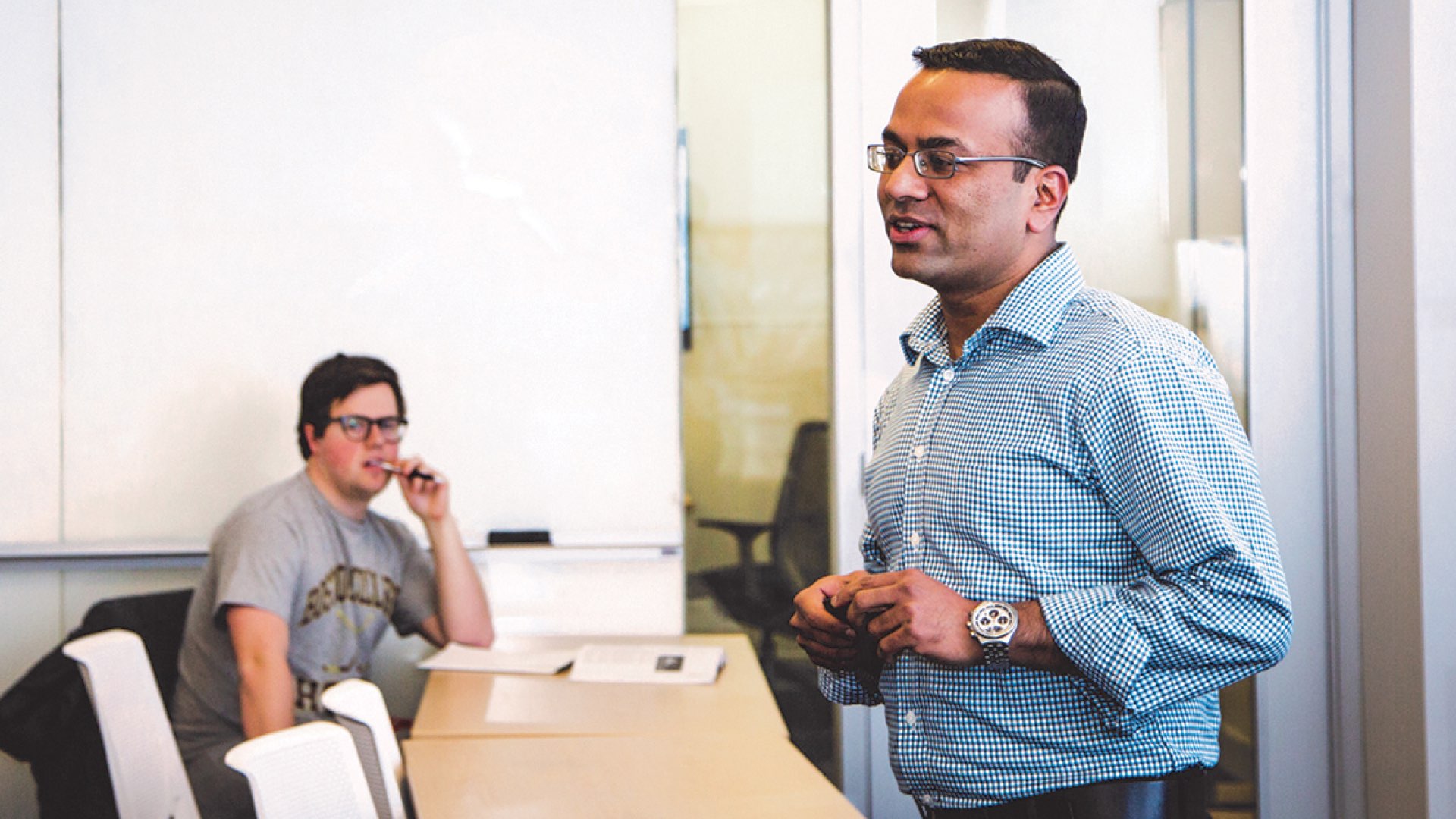From touch-screen ordering at restaurants to self-driving cars, automation has become essential to the modern way of life. It also continues to change how people work, perhaps even hurting their health, says Pankaj C. Patel, PhD, the Frank J. and Jane E. Ryan Family Endowed Chair in Strategy and Innovation, and co-author of a new study in Social Science & Medicine.
Dr. Patel's research shows that occupations that are more likely to be automated also report a higher rate of physical and mental health problems among employees, building on previous findings that anxiety, depression and stress related to job insecurity deteriorates workers’ overall well-being.
In addition to publishing extensively on this topic — with 13 articles published so far in 2018 — Dr. Patel also mentors Villanova’s budding entrepreneurs and promotes the connection of business theory to practice through research. For example, Dr. Patel assigns his entrepreneurship class the task of creating a Kickstarter campaign. By testing ideas on a small scale like crowdfunding, they receive feedback in order to adjust and improve the business model. Dr. Patel says that — for better or worse — automation is only going to become more common.
“This is the new normal. But how can we live with automation, not just deal with it?” he says. Dr. Patel suggests there are several steps employees can take to help adapt to future automation:
1. Engage with the automation process. Work with the employer to seek solutions — job rotation, for example — and offer expertise to help improve the automation process.
2. Develop transferable automation skills, as well as the automated tasks that require human involvement. This increases a worker’s capital, allowing him or her to gain a similar job sooner, in the case of job loss.
3. Invest in skills that promote new automation. Learn how to introduce the automation process into an industry, which will set a worker apart from others and create value through work process improvement.
“
This is the new normal.But how can we live with automation, not just deal with it?”
Pankaj C. Patel, PhD, the Frank J. and Jane E. Ryan Family Endowed Chair in Strategy and Innovation
